Bangladesh’s Prime Minister Sheikh Hasina resigned on Monday, bringing an end to her 15-year leadership as nationwide protests intensified, leading to defiance of a military-imposed curfew and the storming of her official residence by thousands of demonstrators.
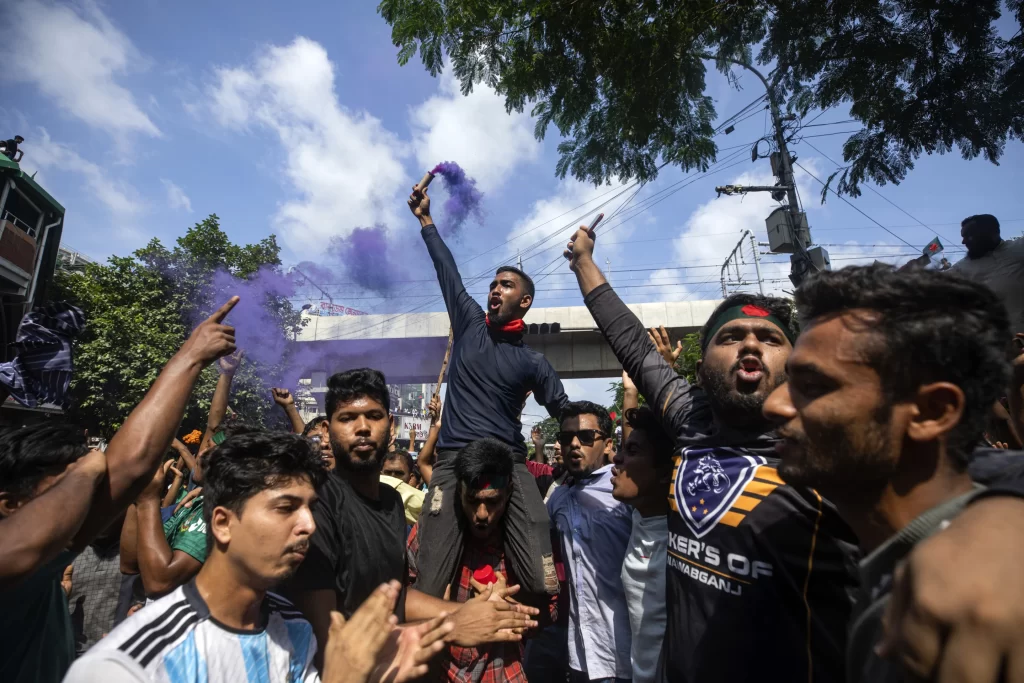
Shortly after local media broadcasted images of Hasina boarding a military helicopter with her sister, Bangladesh’s military chief, General Waker-uz-Zaman, announced plans to consult with the president about forming an interim government. This announcement came amid a backdrop of escalating violence and public unrest.
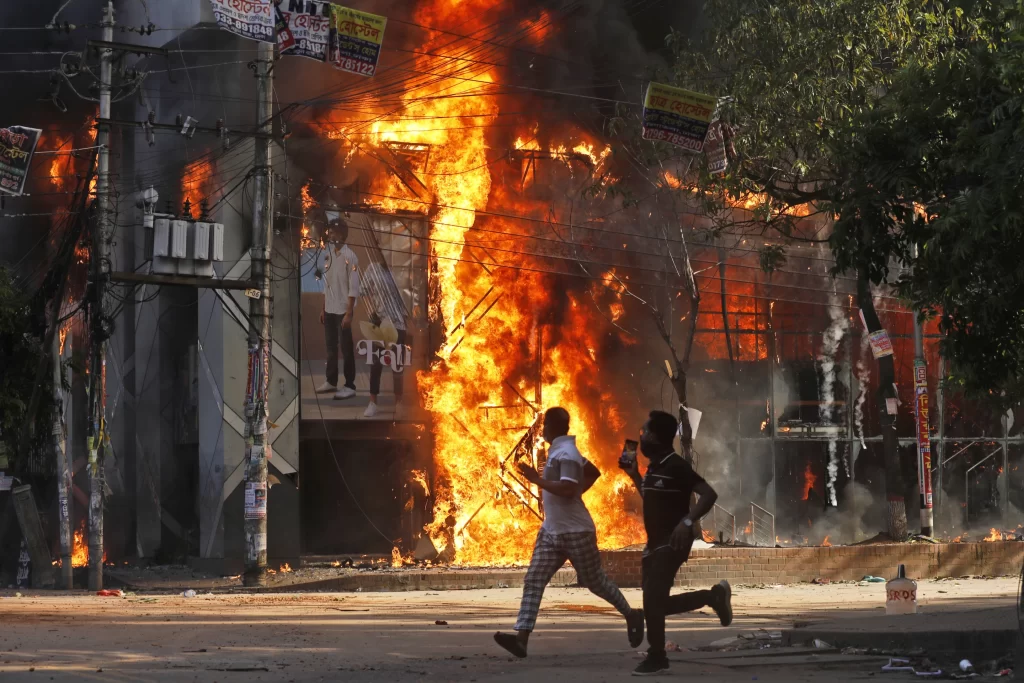
General Waker-uz-Zaman assured the public that the military would stand down and pledged to investigate the deadly crackdowns that have fueled widespread outrage against the government. He emphasized the need for accountability and urged citizens to remain calm as authorities work to restore peace.
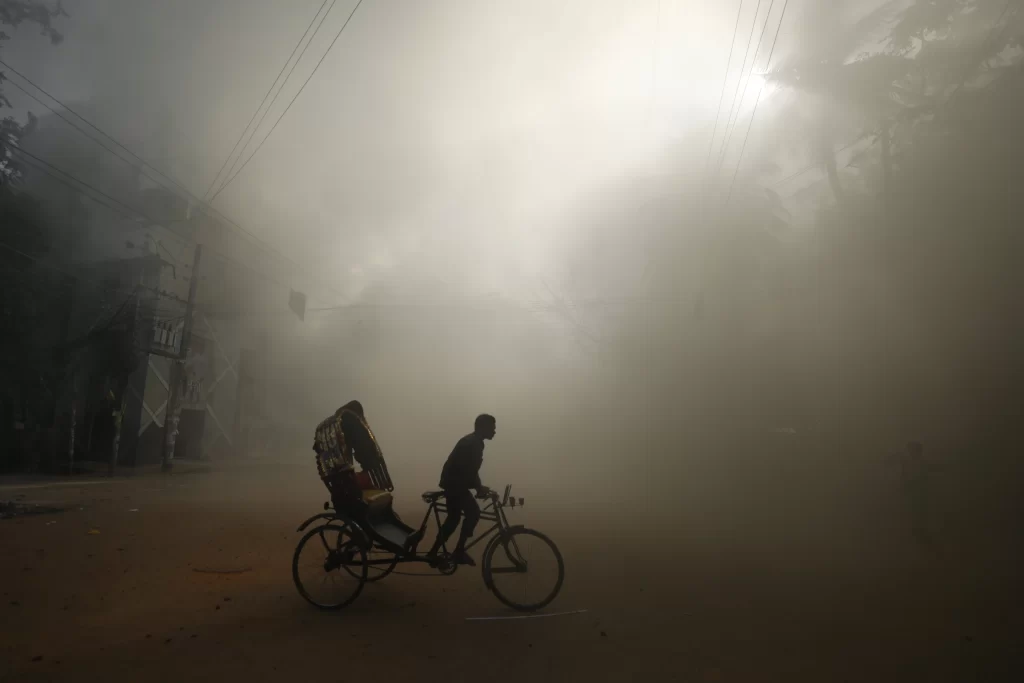
“Keep faith in the military, we will investigate all the killings and punish the responsible,” he stated. “I have ordered that no army and police will indulge in any kind of firing. Now, the students’ duty is to stay calm and help us,” he added.
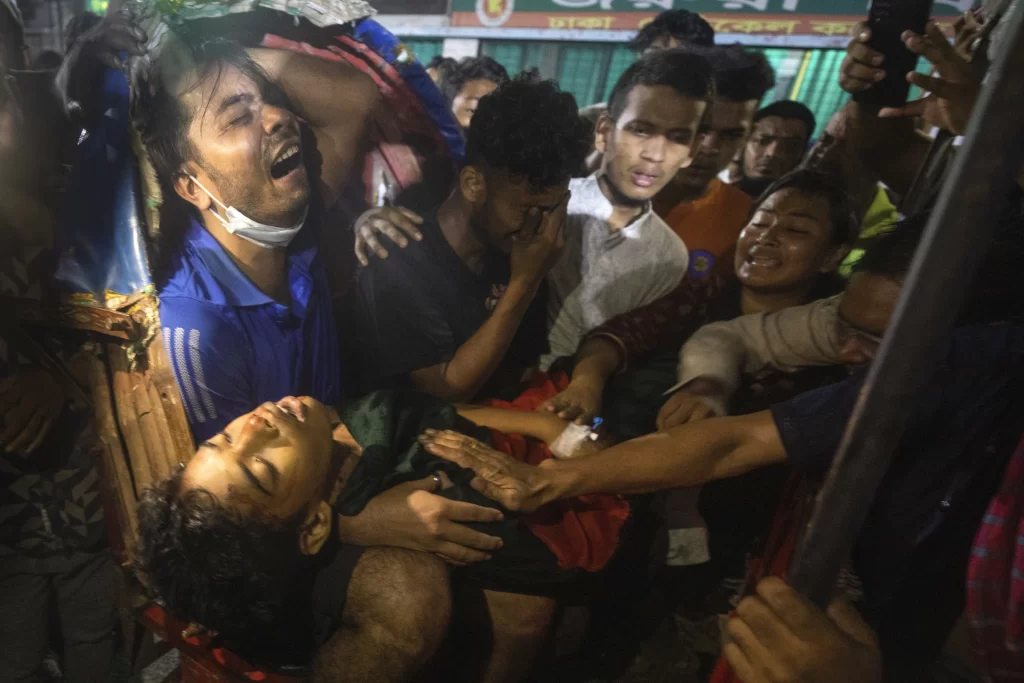
The protests initially began peacefully as citizens demanded an end to the quota system for government jobs. However, the demonstrations quickly evolved into a larger uprising against Hasina and her ruling Awami League party. As the protests gained momentum, the government resorted to using force in an attempt to quell the dissent, resulting in nearly 300 deaths and exacerbating public anger.
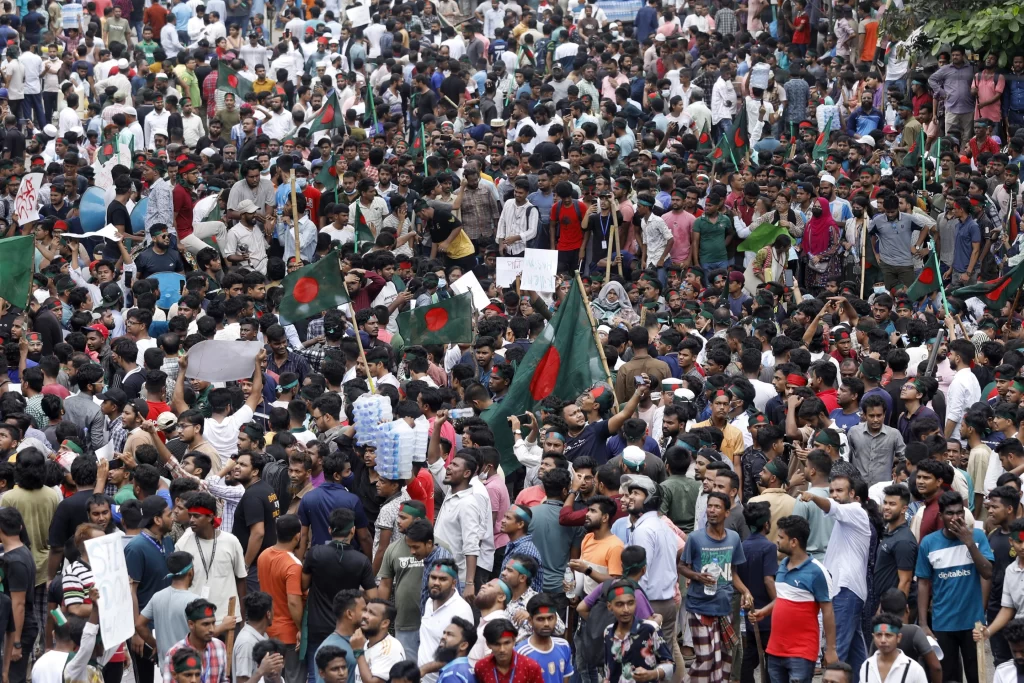
The unrest saw at least 95 fatalities, including 14 police officers, during clashes in the capital city of Dhaka, as reported by the country’s leading Bengali-language daily newspaper, Prothom Alo. Additionally, hundreds sustained injuries during the violence.
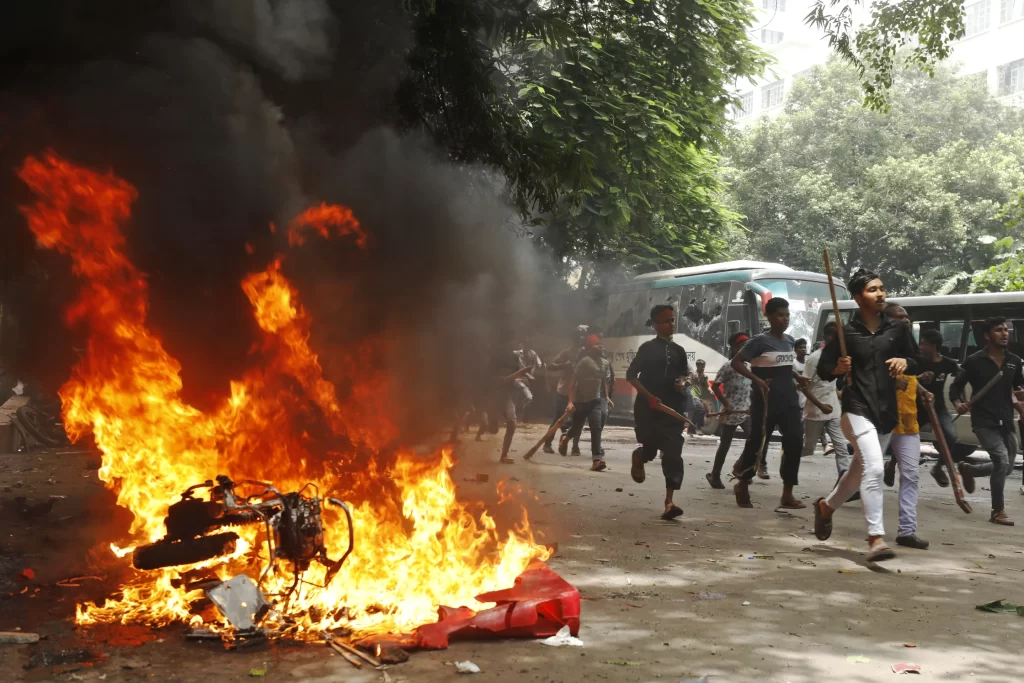
In response to the protests, authorities arrested over 11,000 individuals in recent weeks. The turmoil has spread to various regions, including college campuses and universities across the country, prompting the government to impose a shoot-on-sight curfew in an attempt to maintain order.
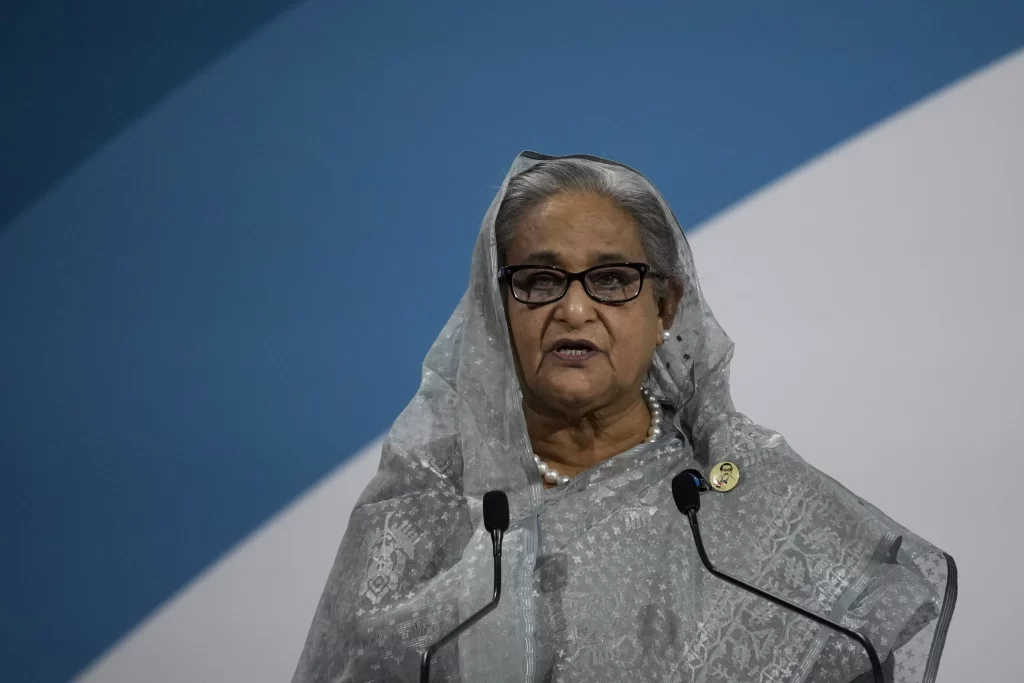
The resignation of Sheikh Hasina marks a significant shift in Bangladesh’s political landscape as the nation navigates through a period of instability and uncertainty. The military’s promise to step back and initiate investigations provides a glimmer of hope for accountability and reform, but the path to restoring peace and stability remains challenging.
As Bangladesh moves forward, the focus will be on rebuilding trust within the government, addressing the demands of protesters, and ensuring that the transition of power occurs peacefully and democratically.
Source: apnews.com



